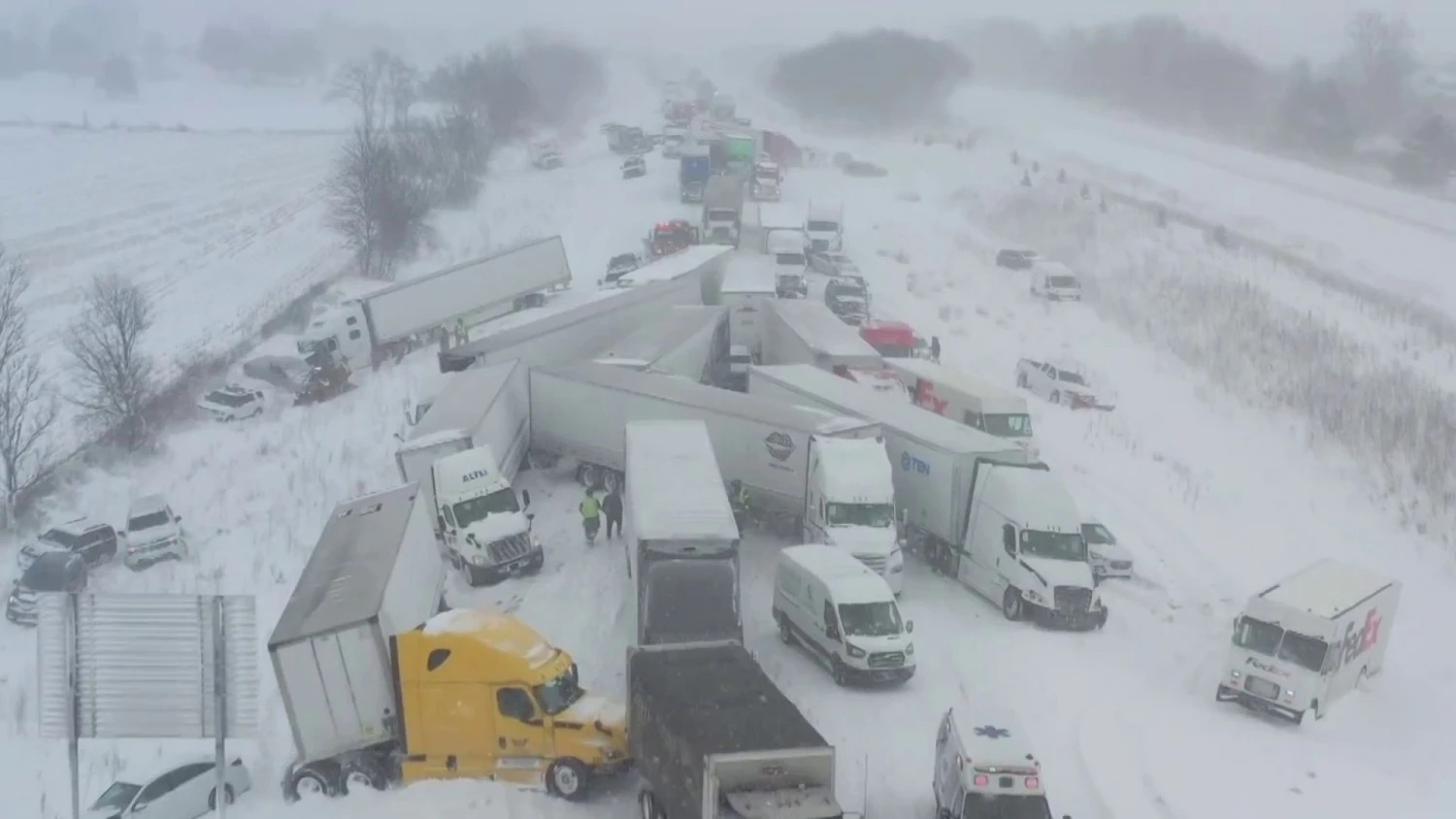Fears of supply shortages are rising in the US, as a strike by dockworkers continues to shut major container ports across the East and Gulf coasts.
Major retailers, including Walmart, Wegman’s and Stop& Shop, said they remained well-stocked and were monitoring the situation.
But importers of fresh fruit such as bananas and other perishable goods warned their supplies would start to run out next week and the possibility of shortfalls had sparked panic buying at some stores.
At least one speciality baby formula, UK-made Kendamil, has already run low.
First-time mum Cindy Mathis, who lives in Brooklyn, made a run to the store to stock up on Kendamil formula as soon as she learned of the strike.
She managed to snag the last can at her local Target. But it will only get her eight-month-old through about a week.
In an Instagram post, Kendamil said it was facing “immediate challenges” with stock levels in the US, as multiple shipments were currently being held at the port in New York.
The company said it was continuing to ship supplies to the US, routing them to other ports, but warned that those were also facing delays.
“Unfortunately this situation is beyond our control,” the company said.
Ms Mathis says the company’s warning of a wider shortage hit her like a gut punch.
“I was heartbroken,” she said. “I hope when I have to buy another can I don’t have to buy another brand.”
The work stoppage started on Tuesday, when tens of thousands of dockworkers walked off the job as their 2018 labour deal expired, halting container traffic at 14 major ports along the East and Gulf coasts.
The International Longshoremen’s Association (ILA), which has about 47,000 active members, has called for higher pay and protections against automation.
The United States Maritime Alliance, which represents shipping firms and ports operators, has accused the union of refusing to bargain, saying it would not agree to pre-conditions to start talks.
President Joe Biden told reporters on Thursday that he thought the two sides would come together.
“I think we’re making progress,” he said. “We’ll find out soon.”
A deal cannot come too soon for the thousands of businesses anxious to see their goods unloaded.
The ports involved handle more than a third of all imports and exports, according to Oxford Economics. That includes a significant share of US imports of items such as bananas, cherries, chocolate and hot peppers.
Though many firms built up supplies as warnings of a strike circulated this summer, companies handling perishable items are under strain.
Anthony Serafino is the president of New Jersey-based EXP Group, which sells more than 100,000 cases of bananas and other produce each week.
The firm is now trucking items such as ginger, which would normally be shipped to the east coast, from the west coast, and diverting its ships to any private port it can find.
“Private ports are the only ports that are keeping the supply chain from breaking in half,” he said. But those ports do not have the ability to handle all the pending shipments, he added.
Mr Serafino said his business had already incurred tens of thousands in additional costs, which he expected to eventually reach shoppers in the form of higher prices.
“We are at a very critical point,” he said. “I am urgently seeking for the port workers and USMX to come to an agreement.”
The situation has revived memories of the pandemic, when shoppers found themselves confronted with shelves bare of basic necessities – with stockpiling sometimes making the shortage worse.
The Food Industry Association said its members were seeing signs of panic buying at some stores, affecting items such as toilet paper.
“While we have empathy for consumers during this time of uncertainty, these behaviors are not fact-based since the paper supply in this country is domestic,” the organisation’s president, Leslie Sarasin, warned in a blog post on Thursday.
“To me and many of our members, it feels like shoppers are returning to their pandemic playbooks, ” said Ms Sarasin. “We should anticipate more of this impulse-purchase behavior as the strike persists, especially as rumors play out in private forums and on social media.”
The Stop & Shop supermarket chain said some of its stores in the New Jersey area had seen a surge in purchases of toilet paper and other paper goods.
It said it was in close dialogue with vendors to ensure its stores remain stocked.
But the backlogs will build if the strike lasts much more than two weeks, said Ryan Petersen, chief executive of Flexport, a supply chain technology firm.
“The big question here is … does this get resolved in the next week or two?,” he said. “If it does, I think you won’t really see much – it’ll be just a blip on the radar. But if this were to continue, you start to see massive bottlenecks.”




